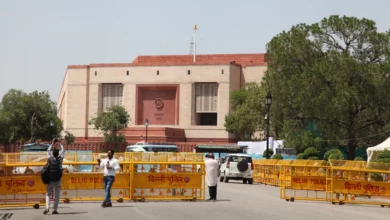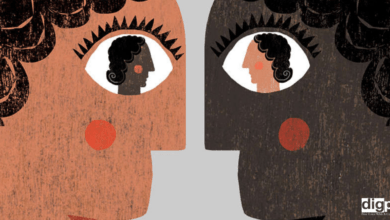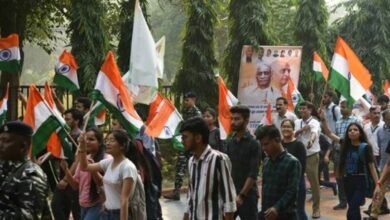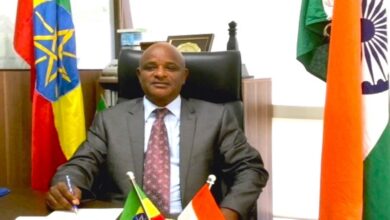How Sardar Patel welded 565 princely states with a young dominion to create the India we know?
To reminisce the legacy of the Indian Iron Man on his 147th Birth Anniversary, on the "Ekata Diwas" (National Day of Unity), let's study the historic "Instrument of Accession" drafted by Sardar Patel and his secretariat.
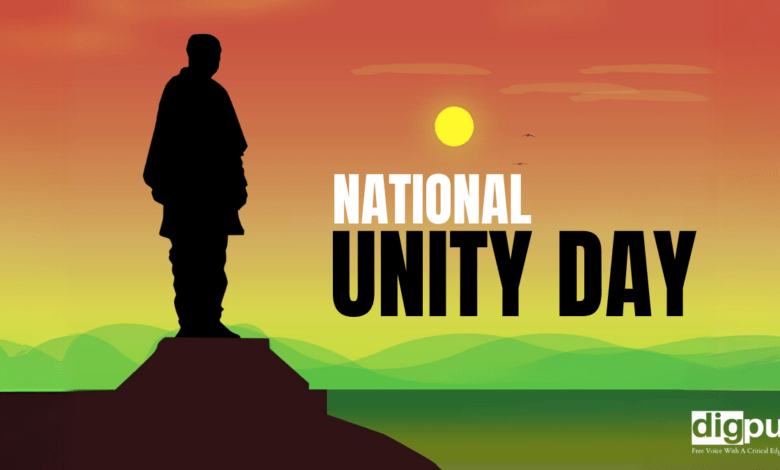
“Little pools of water tend to become stagnant and useless, but if they get joined together to form a big lake, the atmosphere is cooled, and there is a universal benefit,” these were the profound words uttered by the first Deputy Prime Minister and Home Minister of the young Dominion of India, Sardar Vallabhbhai Patel when he tried to articulate the essence of our united and culturally diverse nation.
Each year on October 31st, we celebrate the National Day of Unity to commemorate the legacy left behind by the Iron Man of India and his profound wisdom and impeccable take on what India ought to be! He strategised diplomatically to sew together the bits and pieces of India, giving us a head start against other nations that got contemporarily decolonised with us.
Lord Mountbatten, our last viceroy, chose August 15th, 1947, as the day to hand over the dominion status to India. However, such was the slapdash method of the official proceedings that the dominion of India was left with 565 princely states INSIDE its territory, a setting for utter chaos.
The British had sheepishly maintained that along with India, these princely territories and their Rajas (Monarchs) would receive their independence from the British Raj, and they would return to the same status that they enjoyed before British colonisation. VP Menon, chief secretary to Sardar Patel, was reasonably infuriated by this declaration and contemplated how this would leave India in administrative chaos. He even labelled this declaration as the Britisher’s “greatest disservice” to India.
Several critical princely states like Junagadh, Hyderabad, Bhopal, Travancore, and Jodhpur, had been upholding the placard demanding their complete sovereignty, and Sardar Patel was aware of how the internal sovereignty of India remained jeopardised even after the harrowing partition. Sardar Patel wasted no time and drafted the historic “Instrument of Accession,” which played a pivotal role in shaping the Republic of India.
The “Instrument of Accession” and its three keys:
On June 25th, 1947, PM Jawaharlal Nehru summoned an urgent cabinet meeting and created the “States Department,” putting Sardar Patel at its helm and VP Menon as its secretary. Realising the precariousness of the situation, PM Nehru endowed Sardar with the Herculean task of consolidating India into one nation and thus began the mission of crafting a united India.
On July 10th, 1947, Sardar met with Raja Harish Sharma (Monarch of Patiala), Maharaj BL Mitter (Monarch of Baroda), Raja KM Panikkar (Monarch of Bikaner), and other monarchs as well. Fourteen days later, Sardar met other monarchs as well and devised the “Instrument of Accession” (IoA) and used “three keys” and his sheer diplomatic tactics to convince the princes to give up their symbolic sovereignties.
- Defence: By the time of India’s independence, the world had seen horrific weapons of mass destruction and highly sophisticated weaponry that were impossible to get manufactured indigenously. Sardar Patel leveraged this point and offered an all-inclusive protection package to the princely states against external aggression, internal insurgencies and armed rebellion. The Maharajas comprehended the matter and signed the IoA after being guaranteed holistic protection by the Indian Armed Forces, Indian Navy and Air Force.
- External Affairs: The Maharajas had no experience of forging foreign treaties or having a diplomatic stance before the British Raj, and with the formation of the United Nations General Assembly, the domain of external affairs soon got burdened with complexities. Sardar Patel made the Maharajas realise that the cost of sustaining their international relations was too expensive and complicated for them to bear, and it was impractical for them to formulate their own foreign policies while being dependent on India for their protection.
- Communication: The task of maintaining and operating postal services, telegram, telegraph, radio, telephone, railways, roadways, shipping, and aviation was a rather expensive and complicated affair, and the Maharajas reluctantly yielded when Sardar Patel guaranteed such facilities as perks of signing the IoA.
Mountbatten’s July 25th Address:
Viceroy Louis Mountbatten was overcautious about his image and reputation. Sardar Patel leveraged his insecurities to facilitate the Indian cause. During a meeting with the viceroy, Sardar and VP Menon illustrated how it would be a great blunder for him (Mountbatten) to leave India in jeopardy. They even agitated the viceroy by cautioning him that he would go down in history as an inefficient authority under whose watch the power transfer to the dominion of India resulted in chaos.
Perturbed by this, on July 25th, while delivering an impromptu speech to the Rajas of the Princely State, Lord Mountbatten convinced a bulk of them to sign the IoA by emphasising the benefits of its “three keys.” Lord Mountbatten had added, “You (the Rajas of Prince States) cannot run away from your neighbouring dominion government (India), whose people form a majority in your states too!”
Despite an initial reluctance from the kings of Junagadh, Travancore, Bhopal, Hyderabad, and Jodhpur, Sardar Patel utilised his connections and diplomatic prowess and even the Indian army to get these states acceded into India one after another. In one instance, Sardar integrated forty smaller princely states into Odisha in one go!
VP Menon, in his book “The Story of the Integration of the Indian States,” wrote how Sardar Patel holistically trusted Menon and other colleagues in the bureaucracy with their work. Sardar Patel was meticulous while orchestrating his policies and would go to extreme depths to comprehend the complexities of situations and used his insights to negotiate against the fiercest negotiators!
Had it not been for Sardar Vallabhbhai Patel, we would have had to change our visas countless times to get from one part of our country to another! Thus, we must always cherish the legacy of Sardar Patel and relish India’s unity in diversity.


